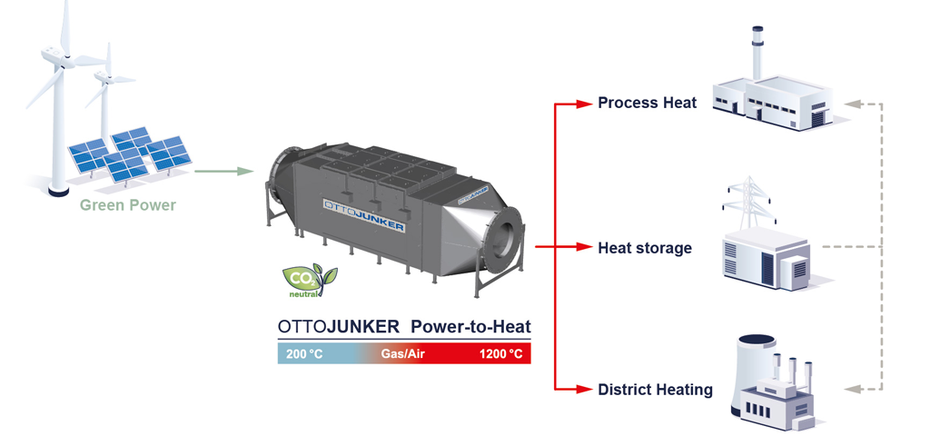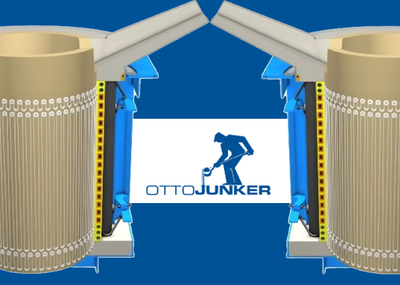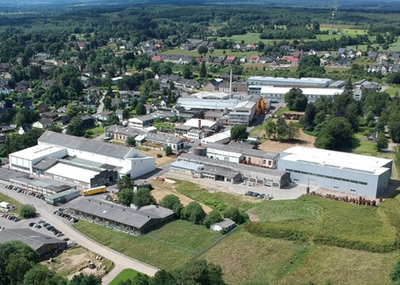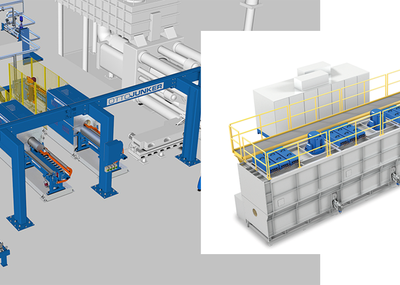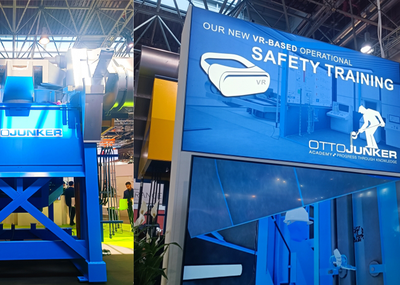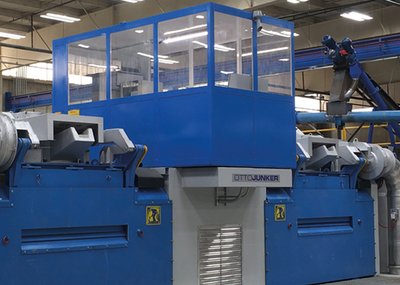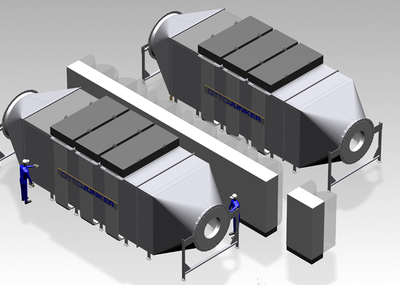OTTO JUNKER SOLUTIONS offer pioneering solutions which can handle the challenges presented by the energy transition. In view of the urgent necessity to switch from conventional technologies to CO2 neutral and green energy sources, the company has developed an innovative Power-to-Heat system which allows a sustainable and efficient energy production across all branches of industry.
For a successful energy transition, a change from conventional technologies which are mainly based on the combustion of fossil fuels towards new, more efficient technologies based on CO2 neutral and green energy sources, is indispensable. The most popular energy source of this kind is power from renewable sources such as wind power and photovoltaic. It is therefore logical to push forward technological development on that basis.
In order to achieve CO2 neutrality, an electrification of the transport, construction, industry and agricultural sectors is necessary. While heat pumps replace oil heaters and electrify the construction sector and E mobility starts replacing petrol and diesel engines, the industrial sector still produces 72 % of process heat by means of fossil fuels, mainly gas.
OTTO JUNKER SOLUTIONS have addressed this challenge and developed a Power-to-Heat plant which, by means of electrical resistance, manages to heat up air to temperatures of up to 1,200 °C. Apart from the direct use of hot air, e.g. in drying processes or the heat treatment of metal, the generated heat can also be used for a number of subsequent processes, such as the transfer to thermal oil by means of a heat exchanger or for steam generation. This extends the range of applications to the food, paper and chemical industries. A huge advantage is the fact that when changing from gas to power, the existing production plants can mostly be kept and can also be operated with both gas and the air heater, i.e. hybrid. This gives a certain degree of energy independence and crisis resilience in times of highly fluctuating energy prices as a consequence of international conflicts. Apart from that, additional cost advantages are created which the companies can take advantage of.
However, there is another obstacle to the expansion of renewable energies: the volatility of power generation. In the future, there will be an increased demand for storage capabilities in order to keep photovoltaic and wind power systems from having to be switched off if more power than necessary is generated.
Using surplus power
Potential solutions for this are large battery storage, hydrogen electrolysis or gravity storage. However, high temperature heat storage is a far better solution, because it offers significant advantages, particularly for companies in the production industry. Using this concept allows the transformation of volatile energy into heat and its storage at low cost. The increasing amount of renewable energies in the electricity network is expected to cause more frequent fluctuations and low price periods in the power market. By combining a Power-to-Heat system with heat storage, these periods can be used to significantly save costs. On top of that, the system can generate additional income because transmission system operators are obliged to keep the network frequency constant at 50 Hz and pay huge compensations for this.
The Power-to-Heat technology by OTTO JUNKER SOLUTIONS offers a lot of potential for the reduction of CO2 emissions and environmental protection. In various branches of industry, e.g. the food, wood, paper and plastic sectors, it allows an almost climate neutral production. In Germany, these sectors alone account for approx. 25 % of the overall energy consumption in industry. In the industry sector as a whole, the new technology can achieve an electrification of the process heat production of up to 50 %.
Application example from the German paper industry
A typical paper factory in Germany requires approx. 41.7 GWh of energy per year, with most of it being required for heat production. Based upon the current frequency and duration of low price periods in Germany, this results in approx. two charging cycles per week of 6 hours each. This means that 267.3 MWh of useful energy have to be stored per cycle, i.e. heat energy which is above the temperature level of the processes. In order to be able to rapidly store this energy within six hours, the typical paper factory will require a Power-to-Heat plant with a power of 44.6 MW. Without heat storage, approx. 3.2 MW would be sufficient. The heat from the Power-to-Heat plant or stored in the heat storage can be used for steam production by means of a waste heat boiler of the type which is also used in powerplants. This can then be taken to wherever it is required via ducts and used for, say, drying processes.
The potential of this system with regard to environmental protection and CO2 reduction is enormous. With a sufficient amount of green power, production in branches such as food, wood, paper and plastic can be completely climate neutral. In Germany, these sectors alone consume about 25 % of the energy in industry, in Europe it is even more than 30 %. The technology allows an electrification of process heat production in industry sectors by up to
50 % (34 % according to McKinsey, 41 % according to AEE), because many processes require heat between 100 and 1,200 °C. Decarbonization of these industries, in particular, will have a major impact, because they are particularly energy intensive. Just looking at the use of the air heater without heat storage in Europe, about 7 % of the overall energy consumption could be electrified with just 17.4 billion €.

